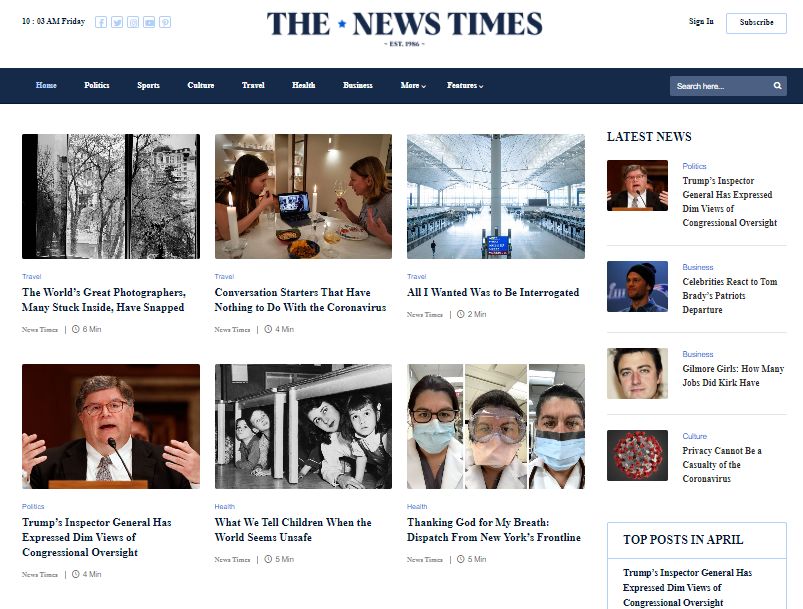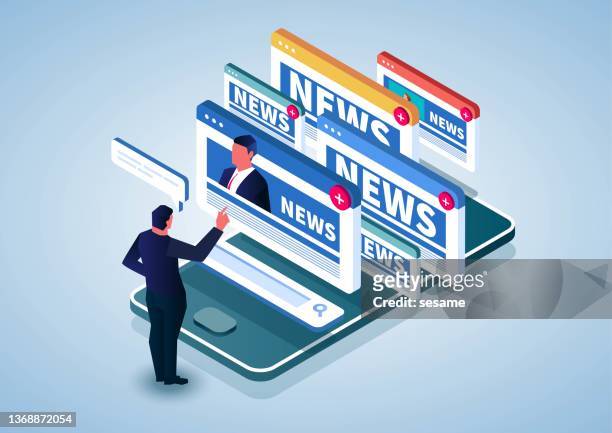The Importance of Fact-Checking worldwide of News Online
The occurrence of misinformation in today's on the internet news landscape has gotten to worrying levels. Fact-checking companies play a crucial function in neutralizing this trend. They confirm cases and boost the trustworthiness of journalism. The effectiveness of these organizations typically hinges on their methodologies and public perception. As audiences browse this intricate atmosphere, the effects of their findings may form the future of news consumption and count on. What does this mean for the integrity of information progressing?

The Rise of False Information in the Digital Age
Exactly how has the arrival of electronic technology contributed to the spread of misinformation? The fast growth of the web and social media systems has assisted in the dissemination of details at an unprecedented pace. Users can share articles, video clips, and opinions with a mere click, usually without confirming the web content's accuracy. Algorithms prioritize marvelous or mentally billed product, bring about an expansion of misleading narratives that catch attention.
In addition, the privacy afforded by digital systems allows individuals to spread out incorrect info without responsibility (stnews.live). Misinformation thrives in echo chambers, where customers are exposed primarily to viewpoints that strengthen their beliefs, further lodging frauds. The saturation of information can bewilder users, making it testing to recognize reputable resources from undependable ones. Consequently, misinformation has actually become a pervasive concern in the digital landscape, impacting public point of view and rely on reputable news resources
The Function of Fact-Checking Organizations
Fact-checking organizations play a necessary duty in boosting the credibility of journalism by validating claims made in news records. Their efforts are important in combating false information, guaranteeing that precise information dominates in the digital landscape. By holding media electrical outlets answerable, these companies add significantly to notified public discussion.
Enhancing Integrity in Journalism
While misinformation proliferates in the electronic age, fact-checking companies play an important function in boosting the credibility of journalism. These organizations diligently verify insurance claims made in news posts, public declarations, and social media sites articles, guaranteeing that information distributed to the general public is precise and trustworthy. By offering independent evaluations, they work as an essential source for journalists, helping them maintain high standards of honesty. Additionally, their initiatives advertise openness in media, cultivating public trust. As target markets end up being increasingly discerning, the presence of trustworthy fact-checking entities can differentiate reputable news resources from those that may spread out falsehoods. Eventually, the dedication of fact-checking companies to maintain reliability is essential for the health of democratic discourse.
Combating Misinformation Efficiently
As false information continues to spread out swiftly across digital systems, the duty of fact-checking organizations becomes significantly essential in the battle for exact details. These companies act as watchdogs, scrutinizing cases made by public figures and media electrical outlets to guarantee responsibility. By employing rigorous research approaches and professional analysis, they validate facts and clarify misleading narratives. Their findings are shared through different channels, informing the public and promoting crucial thinking. In enhancement, collaborations with social networks platforms boost their reach, permitting for prompt flagging of false details. As digital literacy expands, the impact of fact-checking companies is important in encouraging audiences to discern fact from fraud, ultimately adding to a more informed society.
Just How Misinformation Affects Public Assumption
False information considerably threatens count on media, leading target markets to question the integrity of news resources. Therefore, individuals often gravitate towards electrical outlets that strengthen their present ideas, adding to the polarization of opinions. This vibrant creates a fragmented info landscape, where shared understanding comes to be increasingly hard to attain.
Count on Media

Trust fund in media has actually come to be significantly vulnerable in the electronic age, where the quick spread of false information can alter public perception. As misinformation proliferates throughout social media and on-line systems, target markets often locate it challenging to determine trustworthy sources from unreliable ones. This uncertainty fosters uncertainty, leading numerous individuals to question the intentions behind news coverage. As a result, trust in developed media outlets has lessened, as consumers significantly transform to different resources that may do not have strenuous content requirements. This disintegration of trust fund not just influences individual ideas however likewise weakens the collective ability to involve in notified discussions. Eventually, the helpful hints honesty of journalism goes to risk, highlighting the critical demand for effective fact-checking to recover self-confidence in the media landscape.

Polarization of Point of views
The raising skepticism towards traditional media has added to an expanding polarization of viewpoints among the general public. Misinformation, typically shared through social media sites and online systems, plays a substantial duty in shaping distinctive ideological divides. People often look for out info that lines up with their pre-existing ideas, strengthening their perspectives while disregarding opposing point of views. This echo chamber effect magnifies departments, resulting in a fragmented public discussion where consensus becomes significantly elusive. In addition, sensationalized narratives grow in this environment, additionally skewing public assumption and cultivating distrust in reputable sources. As polarization escalates, the need for efficient fact-checking ends up being critical to bridge spaces and promote educated conversations, inevitably making sure a more natural society efficient in maneuvering intricate issues.
Strategies for Efficient Fact-Checking
Reliable fact-checking counts on a methodical approach that includes extensive research, confirmation of resources, and important evaluation of claims. A foundational strategy is cross-referencing information look at this website from multiple legitimate sources to confirm its accuracy. Fact-checkers usually make use of specialized databases and archives to map the beginning of particular declarations, ensuring that the reported information aligns with recorded proof.
Another crucial method involves inspecting the context in which insurance claims are offered. Misleading info can emerge from out-of-context quotes or careful data use. By analyzing the more comprehensive story, fact-checkers can identify potential prejudices or misconceptions.
Furthermore, engaging with professionals in appropriate areas can offer clearness and understanding that improves the fact-checking procedure. This collaboration can uncover nuances that laypeople may neglect - stnews.live. Inevitably, a self-displined technique integrating these methods promotes a more educated public, boosting the integrity of information disseminated in the digital age
The Effect of Social Network on News Usage
Exactly how has social networks transformed the way individuals consume news? The emergence of platforms like Facebook, Twitter, and Instagram has especially transformed news usage patterns. News is currently distributed swiftly, permitting users to access real-time updates and involve with web content through sort, shares, and comments. This immediacy has actually fostered a choice for bite-sized info, often at the expense of extensive analysis.
Additionally, social media sites allows individualized news feeds, where formulas curate content based upon individual preferences, developing resemble chambers that may restrict exposure to varied point of views. The function of traditional news outlets has actually decreased as people increasingly count on peer recommendations and trending subjects. The credibility of info is typically compromised, as sensationalism can eclipse valid reporting. On the whole, social media has actually reshaped news intake, stressing speed and personalization while challenging the standards of journalistic honesty.
Empowering Audiences to Determine Reliable Sources

Furthermore, analyzing the authorship and business history of news posts can disclose potential prejudices. Cross-referencing info throughout several respectable outlets even more enhances the verification procedure. Using digital tools, such as web browser extensions that rate the integrity of web sites, can additionally assist in determining trustworthy details. By actively engaging with these sources and growing an important state of mind, audiences can much better equip themselves to determine dependable news resources, inevitably fostering a much more enlightened society among the complexities these days's media atmosphere.
The Future of Journalism and Fact-Checking
As the media landscape evolves, the future of journalism and fact-checking deals with both challenges and possibilities. The rise of electronic platforms has equalized information dissemination, permitting varied voices to emerge. This has also led to the spreading of misinformation, necessitating durable fact-checking devices. Journalists will progressively depend on technology, consisting of AI devices, to validate facts swiftly and effectively.
Cooperation between news organizations and fact-checking entities is anticipated to reinforce reliability and openness. Target market involvement will certainly play a necessary duty, as educated viewers become significant companions in identifying trustworthy content.
The demand for accountability and accuracy is likely to expand, pushing journalists to copyright high standards in their coverage. Inevitably, the future of journalism might pivot on its capacity to adjust to technical improvements while preserving journalistic stability, guaranteeing that fact-checking stays a foundation of legitimate news.
Often Asked Concerns
How Can I Report Misinformation I Run Into Online?
To report false information encountered online, individuals can make use of platform-specific coverage tools, offer clear proof, and share the information with fact-checking organizations. Involving with community discussions can also aid elevate understanding about the false information.
What Prevail Indicators of Misinformation in News Articles?
Typical signs of false information in newspaper article consist of astonishing headings, absence of qualified resources, psychological language, inconsistent truths, and absence of author credentials. Visitors must seriously review material for these indications to discern precision.
How Do Fact-Checkers Confirm Sources?
Fact-checkers validate resources by cross-referencing info with credible databases, getting in touch with specialists, and examining the original context of insurance claims. They likewise examine the reliability of the sources, making certain precise and trustworthy info for public usage.
What Lawsuits Can Be Taken Versus False information?
Lawsuits against misinformation might include vilification suits, cease-and-desist orders, and regulative charges. Targets can prosecute with civil courts, while some jurisdictions enforce fines or sanctions on platforms disseminating incorrect information.
Exist Apps for Fact-Checking News On-The-Go?
Countless apps exist for fact-checking news on-the-go, including Snopes, FactCheck.org, and PolitiFact. These applications aid customers verify cases swiftly, advertising informed decision-making and promoting an extra critical method to consuming news in real-time.